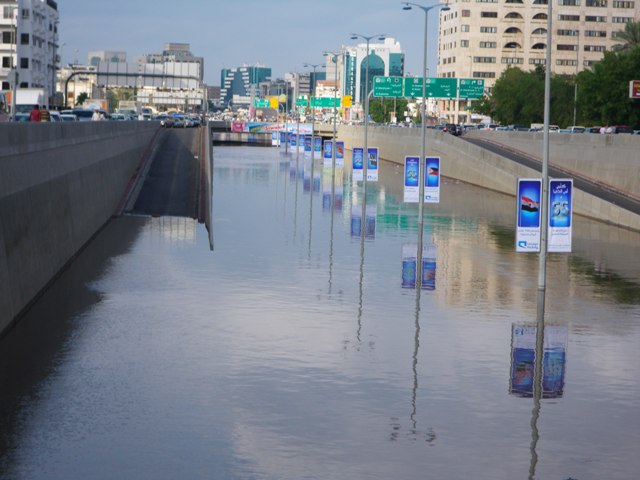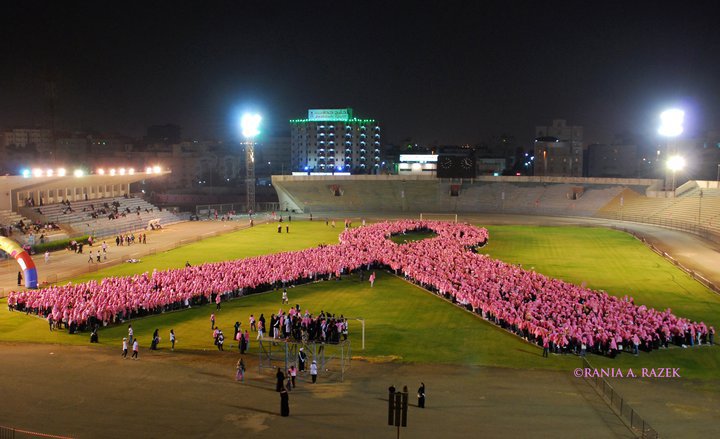The Unholy Path To Holiness
Jan 21, 2015
Story



“Not allowed”he said.
“Who said?”I asked.
“The man in the khaki colored uniform” said my dad, with mild smile on his face.
And I GULPED
My eyes popped out as I slowly lowered my camera. I looked across the street and saw a few ordinary men and gov.officials taking photographs of the area.
“Not allowed for me”I sighed
The police officer seemed like a young man in his early 20’s,perhaps a graduate, recently enrolled in police. He sounded both confused and assured at the same time. Assured because he had to stop a woman; confused because should he stop a women when men are openly doing the same thing. As a young woman,I could empathize with his perplexed state of mind,so I avoided arguing.
“It’s alright,”I said reassuringly.‘I am going to leave when I am done.”
I took a few more photographs while he stood there, looking even more confused.
With traffic malfunctioning on a dangerously busy road, his presence was far more important in regulating traffic than preventing me.
“Photography in public areas has been allowed in the country on 2006.” I said politely. “This is an underpass of an affluent area which has been flooded. As a team member of a social media disaster project, my duty is to document the area.”
He kept nodding,saying nothing and looking far more bewildered than a policeman should in an ideal law-enforcement situation.
I went back to the car, my dad’s car. He,as usual, had left his work to drive me. He drives me most of the time willingly,though sometimes,he wished women could drive or there was suitable transport for women.
As I walked across the road, I saw a myriad of eyes gaping at me. I overheard a group of men, exclaiming, “A women with a camera roaming on the street?!”
I kept walking…
Once men and women feared the devil, now men fear women in public space. More than the devil.
Behind the walls and inside the buildings – things are changing. But my country is still, officially conservative. With 27 million people,over 49 % women, nearly 70 % under the age of 30 – there are still spaces and spheres where women cannot be. As my country battles between tribalism, nationalism, globalization and religion, I do not know what role I could play when I am physically barred from so many physical spaces, when there’s limited space to debate or express ideas.
The Great Wall of Arabia: Gender Segregation or Seclusion?
Saudi Arabia’s pursues a gender segregation policy that prevents unrelated men and women ‘mixing’ in public space. This pursuit of gender segregation only serves to exclude women from mainstream public life altogether.
The official version of ‘segregation’ does not reflect a correct interpretation of religious text nor does it reflect any historical resemblance of earlier Muslim communities of the country.
Princess Fatima ruled the province of Ha’il as an administrator from 1911 -1914,she graciously commanded the now demolished 300,000 sq meter Barzan Palace. She not only received foreign guests but allowed guests to photograph her as well.
Then why in the 21st century, is a woman with a camera considered as dangerous as an anarchist with a gun?!
In my country, stereotypical views about gender roles and identity are the leading factor in organizing a way of life, which perpetuates gender inequalities - frustrating and constraining women from doing anything that technically ‘breaks’ those notions. With very little exception, whether it is an authorized institutionalized sphere, quasi-public or leisure space, the moment she steps out, she has to walk through a barrage of ‘landmines erected to prevent her from deviating from restrictive gender roles.
There are libraries, museums and other public areas where women are barred legally or by social attitude. There are many women-only sections (banks, restaurants, government offices, stores) but very few of are exclusively operated by women, e.g. the first women-only hotel established in 2008, is operated solely by women. But it’s still men who decide where and how women only places should be created.
Some are occupied in excluding women from the public domain even if it contradicts religious teachings and practices. Some believe that a woman’s religious devotion and piety is demonstrated by the length of her abaya (cloak) and the duration of time she remains inside her home.Others believe the less if she abandons her abaya and the less she stays home shows her as progressive women. Nobody asks what she wants.
According to Global Gender Gap Report (2009) in “economic participation and opportunity” for women, my country ranks 133 out of 134 listed countries. However,women outnumber men in university and higher education.
95% working women are in the public sector: 85% in education - in both teaching and administrative positions,6% in public health and 4% in administration. From 1992 to 2010, women’s participation in the labour force almost tripled, but only 14.4% of women seeking a job are currently employed. As a result, many young, qualified women find jobs in neighboring countries.
Saudi labour law permits,"women to work in all fields suitable to their nature,” and forbids women to work at night or in “hazardous jobs or industries.”
It is more acceptable for women to plunge into poverty than work and earn a dignified living.
We rarely discuss justice or morality when a woman’s wealth is hijacked by her male guardians, unequivocally backed by legal courts,leaving her with no open doors except begging. There’s nothing moral about women with children begging in streets. Begging from men doesn’t count as ‘mixing’. Begging seems to suit her nature and it’s not socially ‘hazardous’.
“I believe a woman’s first and last place is at home. If she wishes to work, she can work from home. There’s no need to go out to claim equality with men. Men and women are equal. Segregation in public protects women’s dignity and prevents immorality”says Sarah, a mother of two.” Sarah’s statement reflects the commonly accepted definition of gender roles.
Yes,women do not need to go out to prove equality with men. But whether to stay home or step out - should be her choice. And as a society,our goal should be to aid her and not condemn her.
What ‘protection of dignity’ do we intend to achieve when men sell women’s lingerie, jewelry, perfume and toiletries. In our strictly gendered-segregated society, men sell women’s undergarments!
“It’s extremely humiliating when a man asks your size in a condescending or flirty way” says Samira, 21. “I used to go lingerie shopping with my mom, but now when we go in all-girls groups, men slowly walk away. We create a big private space of our own!”
It is more acceptable for women to hire male drivers or ride in a taxi with ‘unrelated’ men in a confined space (car) than to drive a vehicle herself. It’s not about segregation but dis-empowering women. A woman behind the wheel is symbolic. It is synonymous with having enough power to make her traveling decisions. This worries some, and doesn’t please others.
The seclusion is extended into religious space as well. Many mosques do not designate a place for women worshipers. If they have, they are usually very poorly maintained. There are visible restrictions in the two holiest mosques in Madina and Makkah. As a female worshiper, I am constantly asked by security officers to finish my prayers quickly and ‘move aside’. Women struggle to pray peacefully in the small spaces dedicated for them. Walls erected in women’s areas prevent them from seeing the Imam or enjoying the splendid architecture of the holy mosques. There are time restrictions at other holy sites as well.
Are men’s prayers more needful than women’s? Did God say he listens to men’s prayers more than women’s?
Women do not lack wisdom to understand the implications of these policies. They may differ in formulating a solution but they’re increasingly challenging this seclusion in unconventional, new ways.
The Wireless Sidelining the Walls
“I tweet because I have no other way to express myself” writes one women using Twitter.
“My lecturer gave me a low grade, from A to C, because what I wrote was deemed ‘Inappropriate’.” tweets another female university student. Someone tweeted her asking what she wrote about. “Women’s rights in my country“she tweets. I wrote her consoling tweet and suggested ways to solve the issue and encouraging her to talk calmly and rationally with her lecturer as well
The absence of physical platforms to discuss, debate and express ideas has led many people to dive into social networks and use social media. According to a recent report,Saudi Twitter users have increased by 240 % since the beginning of 2010.
The 2009 flooding of the major port city of Jeddah has been a watershed moment in social media and civic engagement history. Frustrated with government response and ineffectiveness, young women and men used social media tools to disseminate and consume information
Women are using social media to fight back for more space and participation as well,using the very same argument that secludes them:“to prevent gender mixing”.A woman initiated a Facebook campaign calling for women-only hospitals where all staff will be women. The proposition is now being discussed at government level.
“Many feel too restricted in terms of expressing and getting real time discussions going on here. Limited forums and venues promoting expression of ideas begs for alternatives. However, operating almost underground, says Alisha, a spiritual poetess ‘Facebook doesn’t cut it. We need face-to-face interaction and to feel comfortable expressing ourselves”
A Journey Behind the Wall
I would like to evaluate our progress not in terms of GDP or the number of tall buildings we build but how we nurture our young and our women. People say my aspirations for my country are way too high because I want my country to be leader and not a follower in developing a society inclusive of women. It’s my country; shouldn’t I have high aspirations for my people?
There should be more women-only spaces operated by women,e.g police stations. Concurrently we need to encourage women’s participation in the mainstream, without being judged or feared. For this to happen we need to discuss proposals from ordinary people. For this to take place – we need more physical platforms. It’s all connected.
As I clean my camera’s lenses, I reflect on the day when I felt exuberant, anxious, and thrilled to enter public venue for the first time, openly declared “only for men”.
Upon setting my feet inside,my scientist mind said: “explore!”So I pulled off a few blades of grass and tried to study. It was green,lush grass - well tended and watered. I never knew grass would marvel me!
The artist inside me asked to seize the moment. Politely submitting to her request, I laid on the grass, stretched out my two hands – stared at the pitch black sky with two shining bright stars!
I wondered why women can’t use public venues like stadiums more often. Why can’t we play football? In Saudi Arabia, women do not engage in any kind of sports. Most of us have never seen a sports facility. Except that day, when thousands of women stood shoulder-to-shoulder pledging to support breast cancer victims/survivors - vowing to raise awareness.
The event was marked in the Guinness Book of World Records for creating the largest ever human chain in shape of a ‘Pink Ribbon’.Women were exclusively permitted to use the stadium for this event. Since this was the first such large event entirely organized by women,there were signs of disorganization and disagreement. Simultaneously, there were visible signs of empathy and unity. The mere presence of thousands of women from diverse communities showed that women can erase the walls of color, class and religion. It’s an example of how things can change, and when women come together in single platform - many things can change for greater good.
Saudi Arabia’s wealth does not lie beneath the soil, i.e. its oil. But above the surface, inside every home – It’s in our women. By harnessing the collective power of all women we can transform the consciousness of individuals and ultimately our private and public lives.
Sources : Princess Fatima Al Zamil (Fatima Mernissi’s book “The Forgotten Queens of Islam”)
This article is part of a writing assignment for Voices of Our Future, which is providing rigorous web 2.0 and new media training for 30 emerging women leaders. We are speaking out for social change from some of the most unheard regions of the world.




